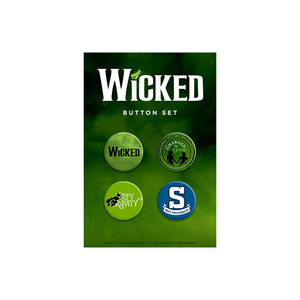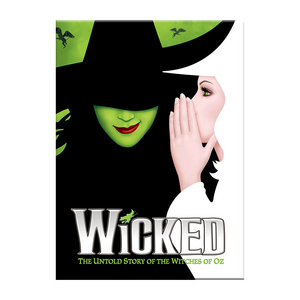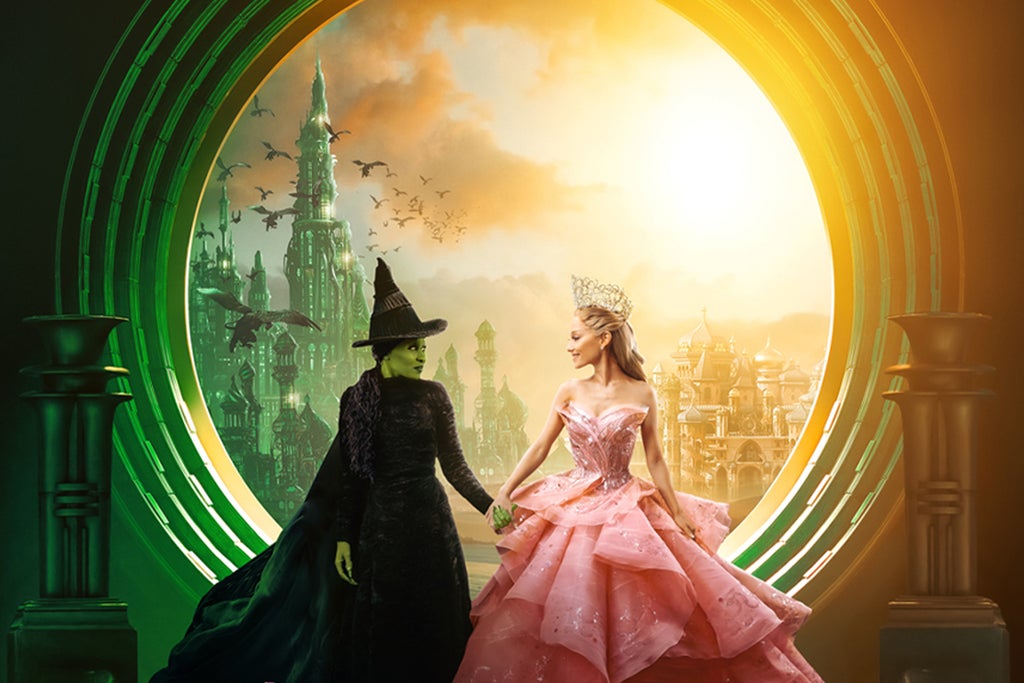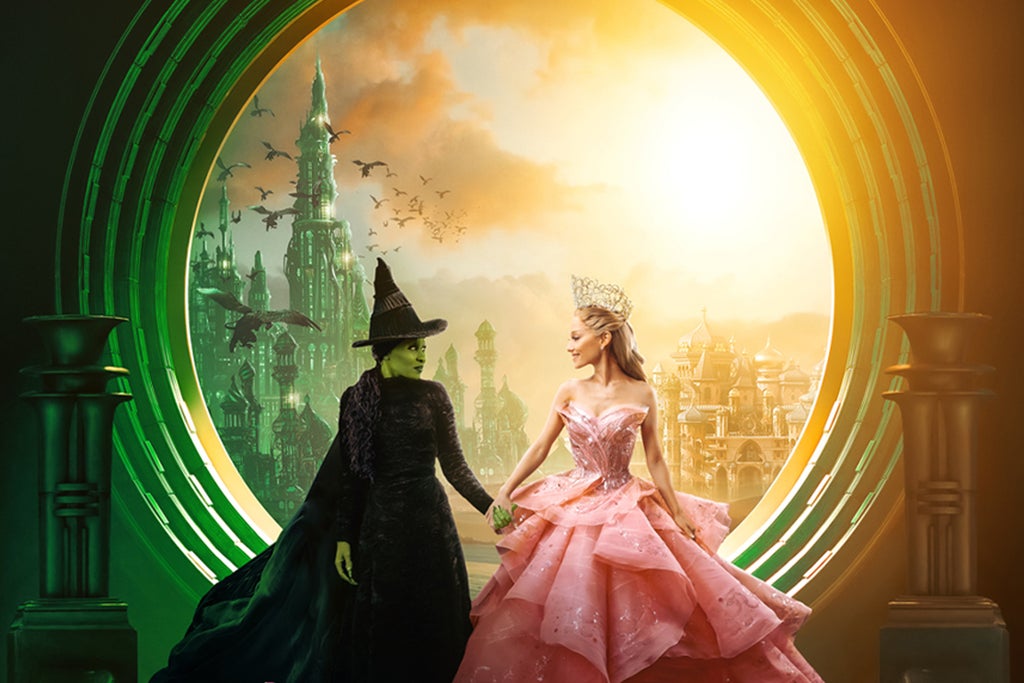Photo Coverage: Stephen Schwartz & Friends
Just call him Long Island’s other Piano Man. Stephen Schwartz showed off his piano virtuosity along with his prolific output of theater and movie songs, and shared some inside information about the creation of Wicked, at a concert Saturday night in Port Washington, N.Y. Liz Callaway, Debbie Gravitte and Scott Coulter also performed in “Stephen Schwartz & Friends” at the Jeanne Rimsky Theater at Landmark on Main Street.
Before the concert, Schwartz was presented with the Long Island Sound Award, for “outstanding contributions to Long Island’s musical heritage,” by the Long Island Music Hall of Fame. Schwartz, 60, grew up in Roslyn Heights, a neighboring town of Port Washington. (For more about the Hall of Fame—which inducted Billy Joel and about 25 others, including George M. Cohan and Cyndi Lauper, in its first induction in 2006—go to www.limusichalloffame.org.)
The award goes on Schwartz’s proverbial mantel beside his Academy Awards for Pocahontas and The Prince of Egypt, a Grammy for Wicked and Drama Desk Awards for Wicked, Godspell and Working. The Juilliard and Carnegie Mellon alum also received Golden Globe, Grammy and ASCAP awards for Pocahontas’ “Colors of the Wind” and an ASCAP prize for “When You Believe” from Prince of Egypt, and has numerous other Tony, Oscar and Grammy nominations.
The concert drew from Schwartz’s film and stage work, as well as from his 1997 album Reluctant Pilgrim, for which he wrote songs for himself and not any fictional characters to sing. Schwartz was on piano for the entire performance and also sang many numbers. He told the audience his castmates Callaway, Gravitte and Coulter were “three terrific friends” and “three of the best singers.” Prior to bringing them on, Schwartz performed four songs by himself.
One was “The Wizard and I,” Elphaba’s first number in Wicked, but before doing it he told the audience that it was originally conceived as a song titled “Making Good,” which Elphaba would sing as she was boarding the train to Shiz University. After Idina Menzel was cast (about halfway into Wicked’s five-year development), Schwartz felt that her “brash and tough personality” demanded a song that was “more driving.” He rewrote “Making Good” but still wasn’t satisfied: “We hadn’t really moved forward; we kind of moved sideways.” Schwartz’s director son Scott then advised him that the whole yearning-on-the-train scenario was an overused and outdated construct in musical theater, and eventually the scene was reset to Shiz University after Elphaba has already been told her magic powers may bring her to the Wizard’s attention.
Schwartz also discussed his creative process on the animated film The Hunchback of Notre Dame. “When Alan [Menken] and I first got the assignment...Disney said to us they were sending us on a research trip to Paris,” he related. “I was thinking, ‘Oh, what a racket! I’m going to Paris and I’m pretending I’m doing research.’ But, actually, it turned out to be a very useful trip.” He gained off-hours access to the Notre Dame cathedral, climbed the 369 steps to the belltower and wrote words to Menken’s music as he stood among the gargoyles. Coulter sang the Hunchback anthem “Out There,” but first spoke of how he was moved by the song when he saw the movie because it expressed the feelings he’d had while growing up in Tennessee, where he “was a bit of a misfit...but I always knew that somewhere in the world there was a place for me, where I would belong.”
This was one of the final shows of the season at the Jeanne Rimsky Theater. Next season, Christine Ebersole and Brian Stokes Mitchell are among the Broadway talents scheduled to perform there. For more information, visit www.landmarkonmainstreet.org.
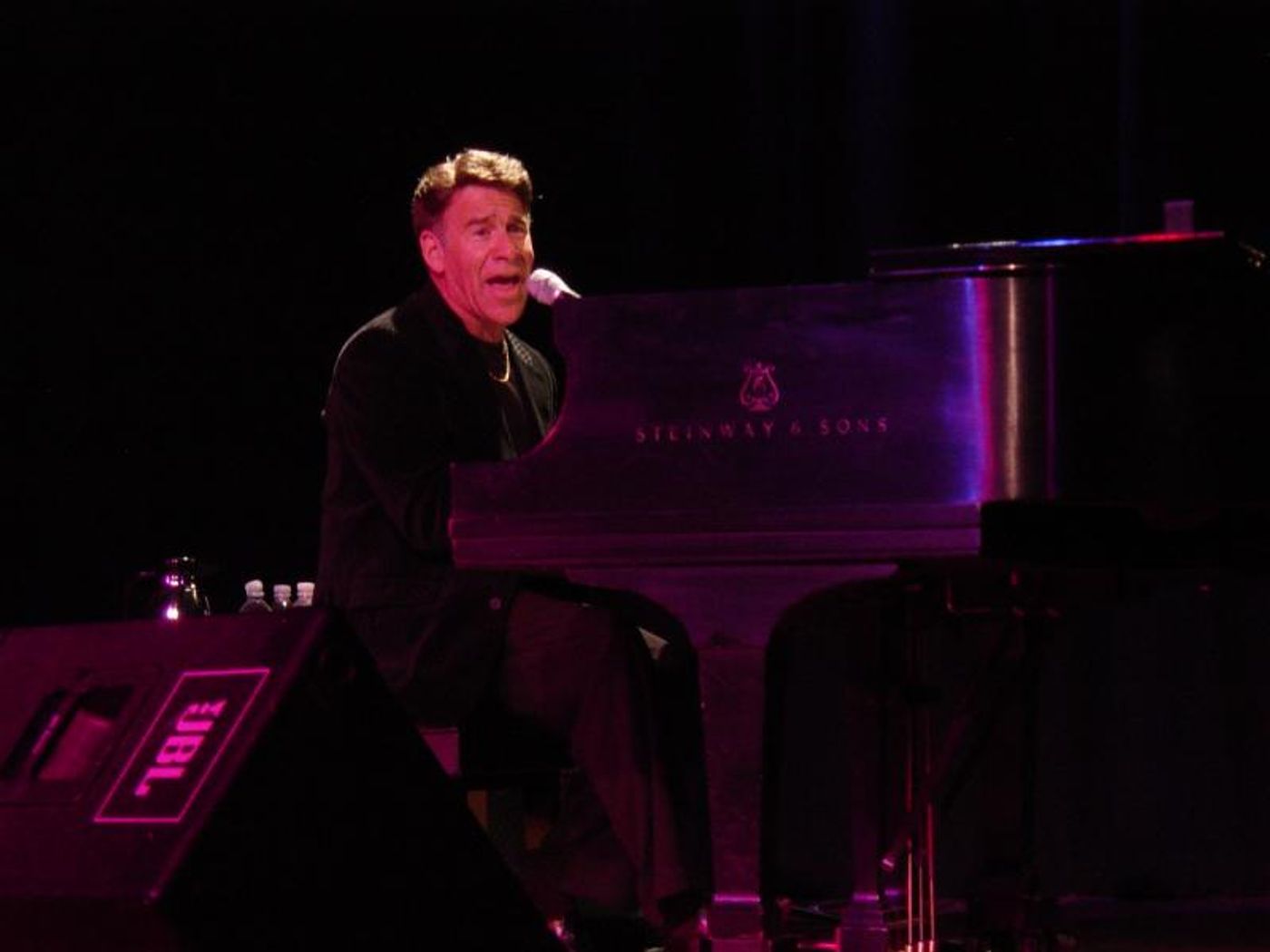
Schwartz said he chose “Chanson” (from The Baker’s Wife) as the first piece of the evening because “it is a song about finding the new in the familiar, and that’s sort of the theme of the show.” He followed with “Crowded Island” from the CD Reluctant Pilgrim and “The Hardest Part of Love” from Children of Eden.
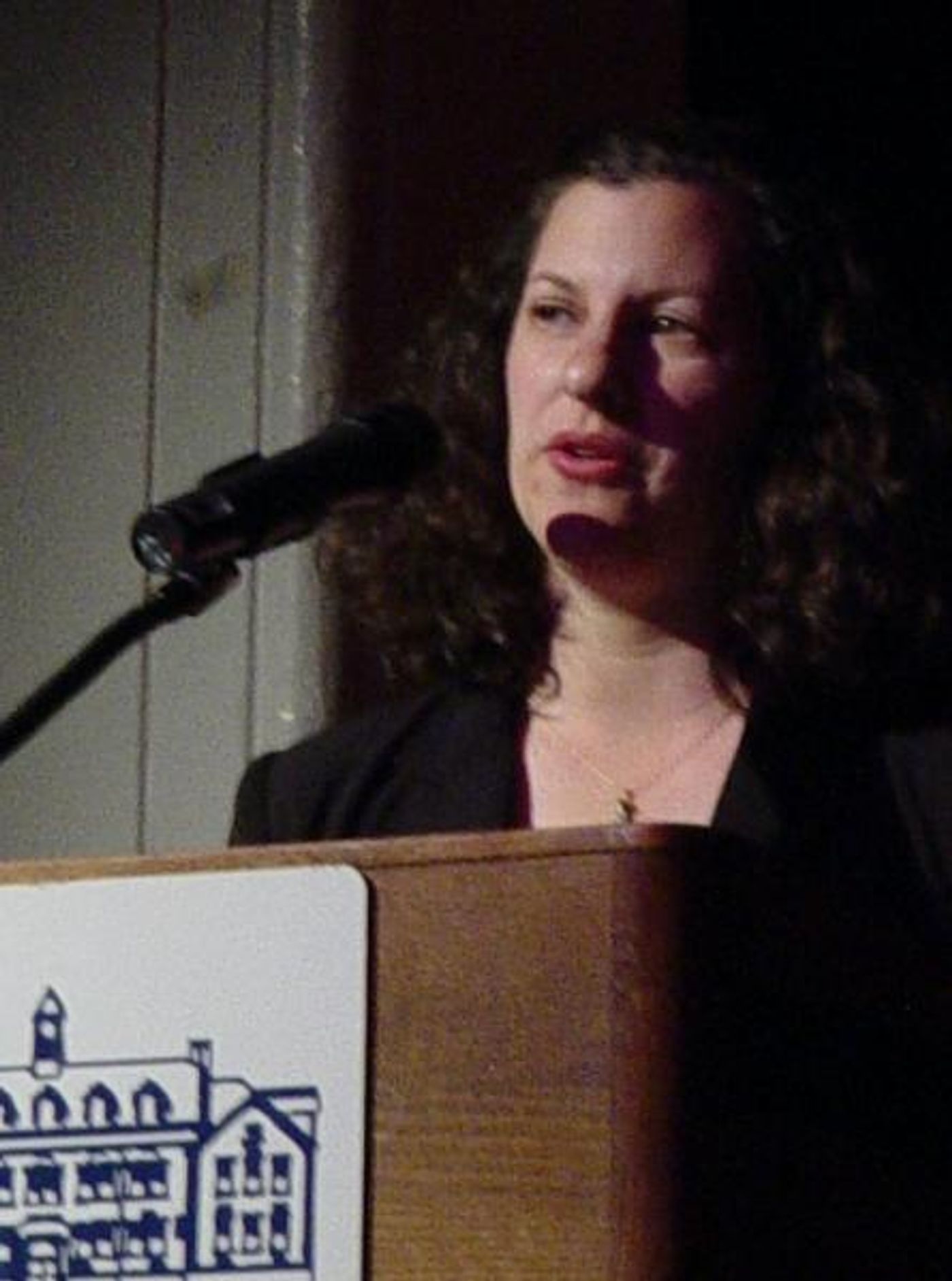
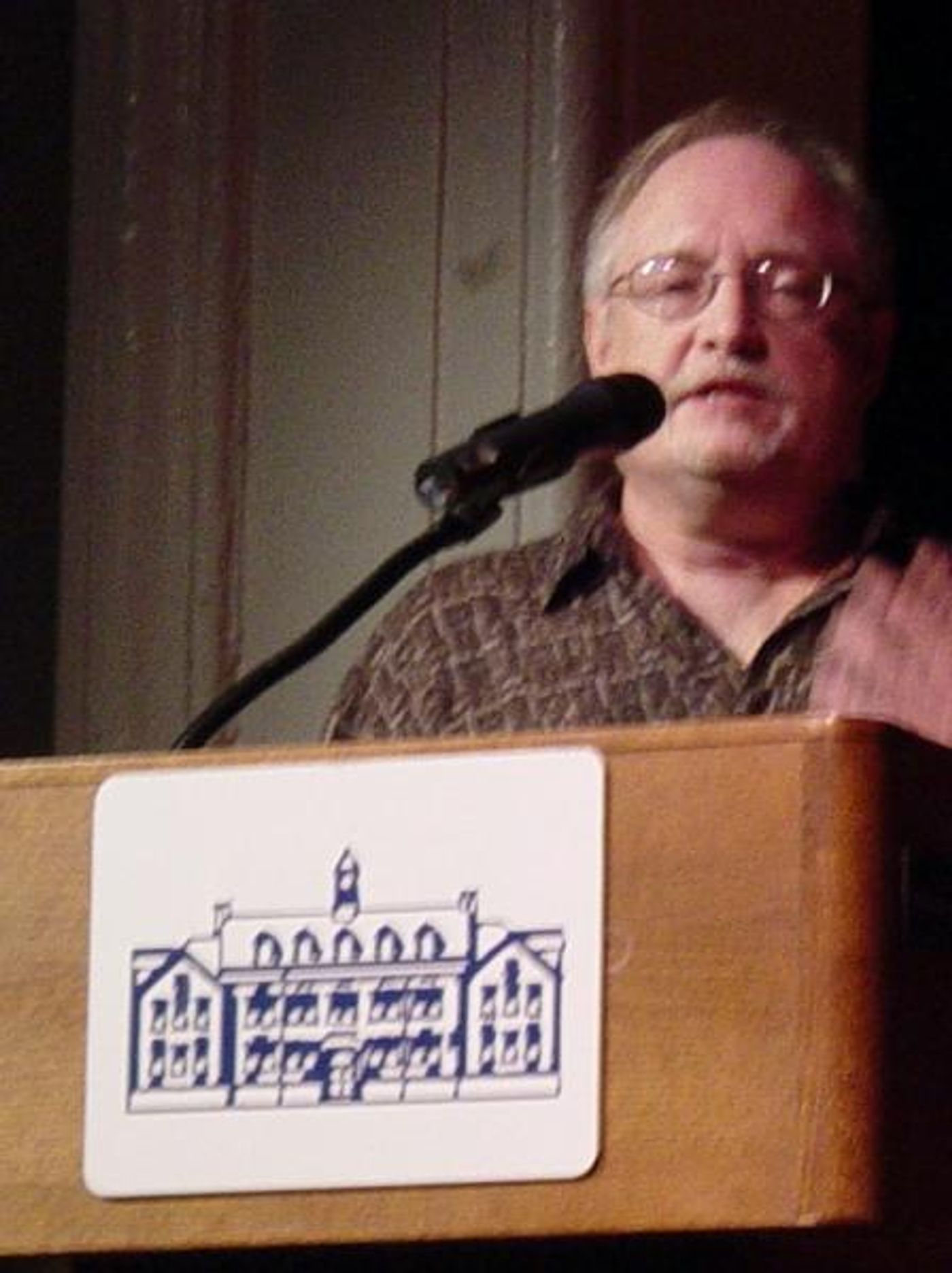
Sharon Maier-Kennelly, executive director of Landmark on Main Street, and local radio personality Denis McNamara welcomed guests.
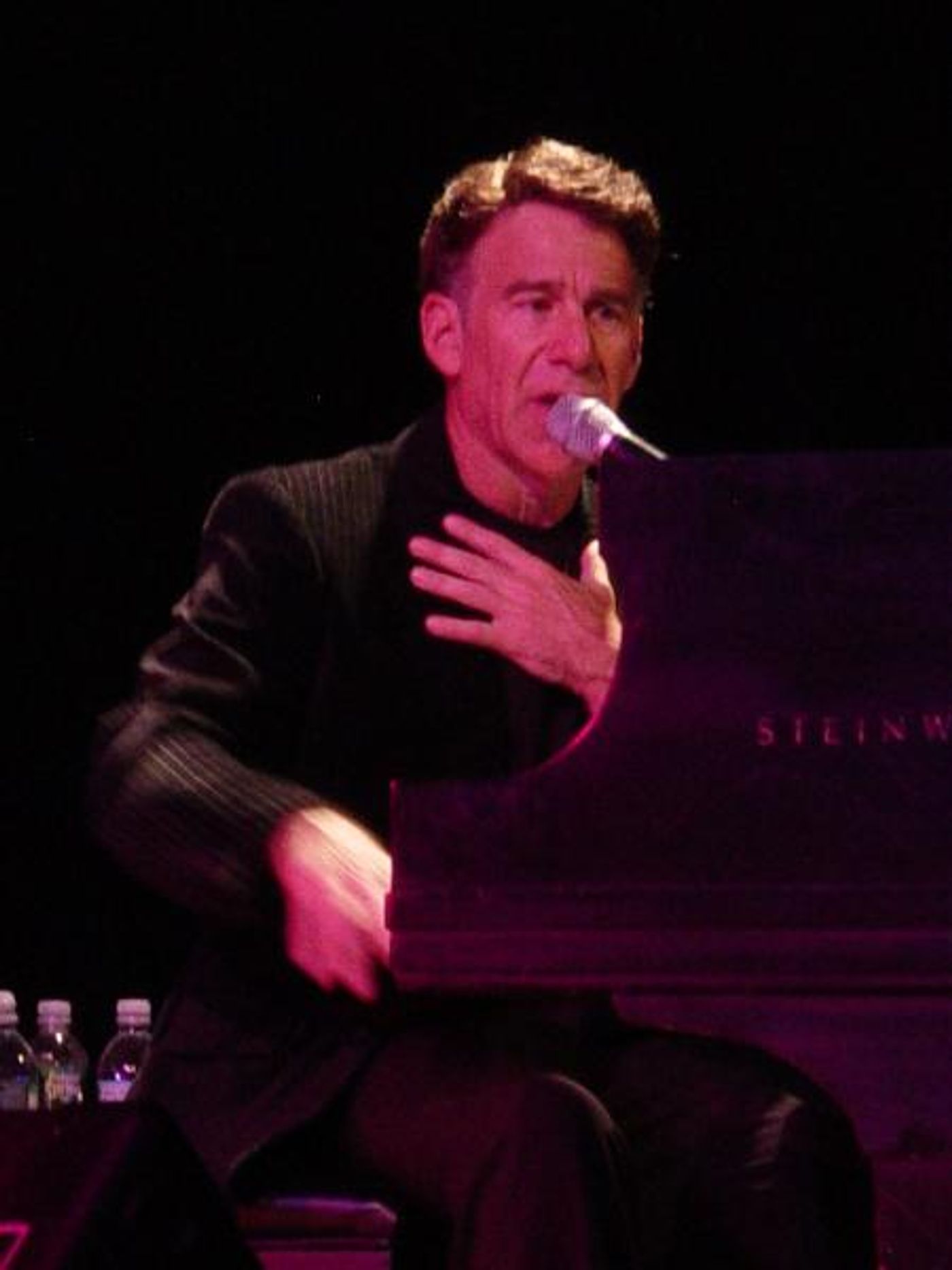
In describing the genesis of Elphaba’s first number, “The Wizard and I,” as a sweeter-tinged song called “Making Good,” Schwartz explained that he “had the notion that all the songs in the show, because the show was going to be called Wicked, should have either the word ‘good’ or the word ‘evil’ or ‘Wicked’ or ‘bad’ in the title of the song.” He added: “I thought that was a very clever idea. I abandoned it rather quickly.” After many revisions, virtually all that remains of the original song is a lyric about making good in the first lines of “The Wizard and I.”
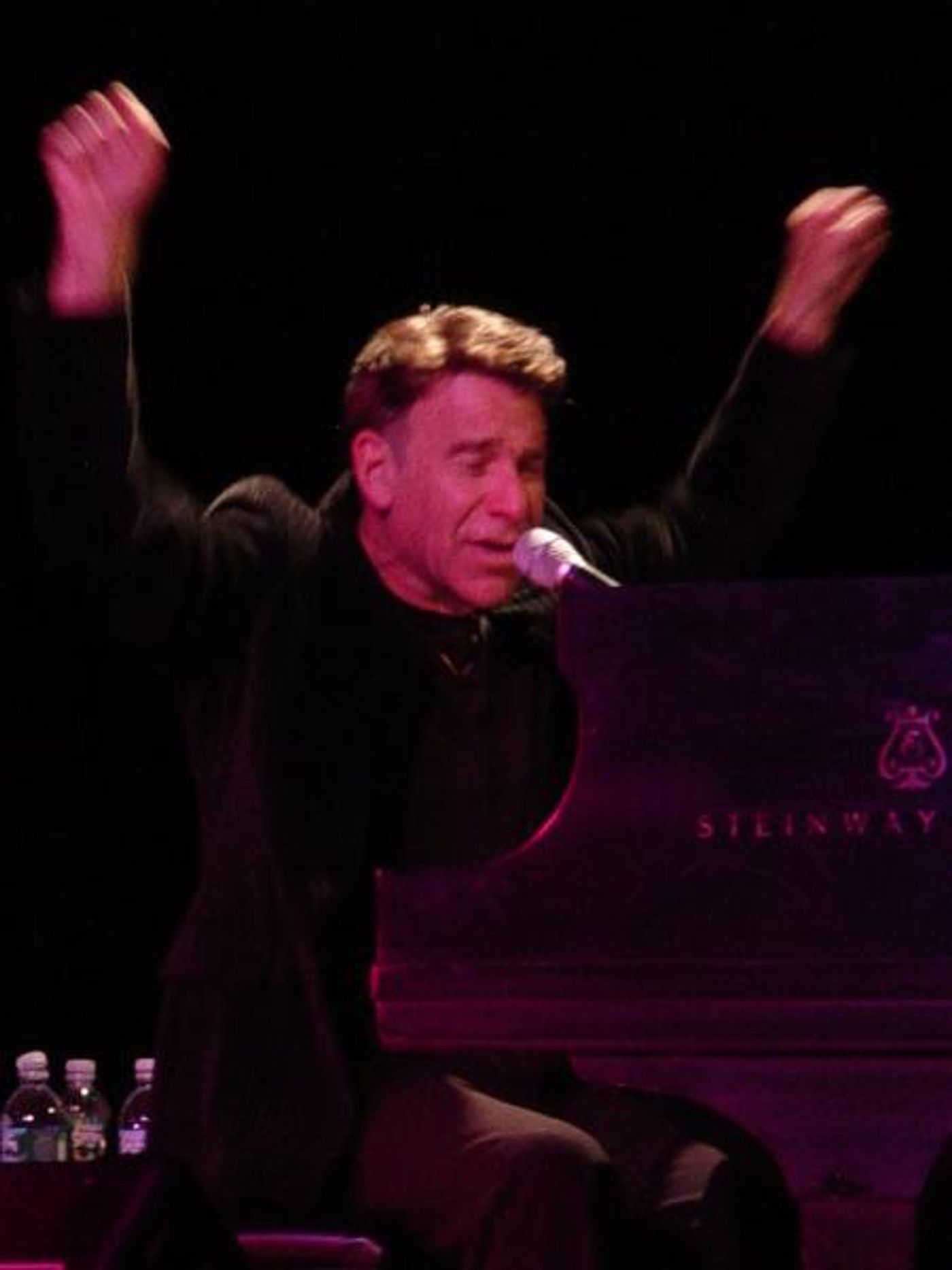
Schwartz knew people would be expecting a belt in a song sung by Idina Menzel, but he took a cue from A Chorus Line in creating “The Wizard and I.” He remembered that when he first saw Chorus Line, he kept anticipating a kick line in “One,” but it didn’t occur until the final steps. “Michael Bennett had done something very smart—he had taken the obligatory moment and he made you wait for it.” So Schwartz decided to “hold the big belt moment for Idina and for the character till the very end of the song.”
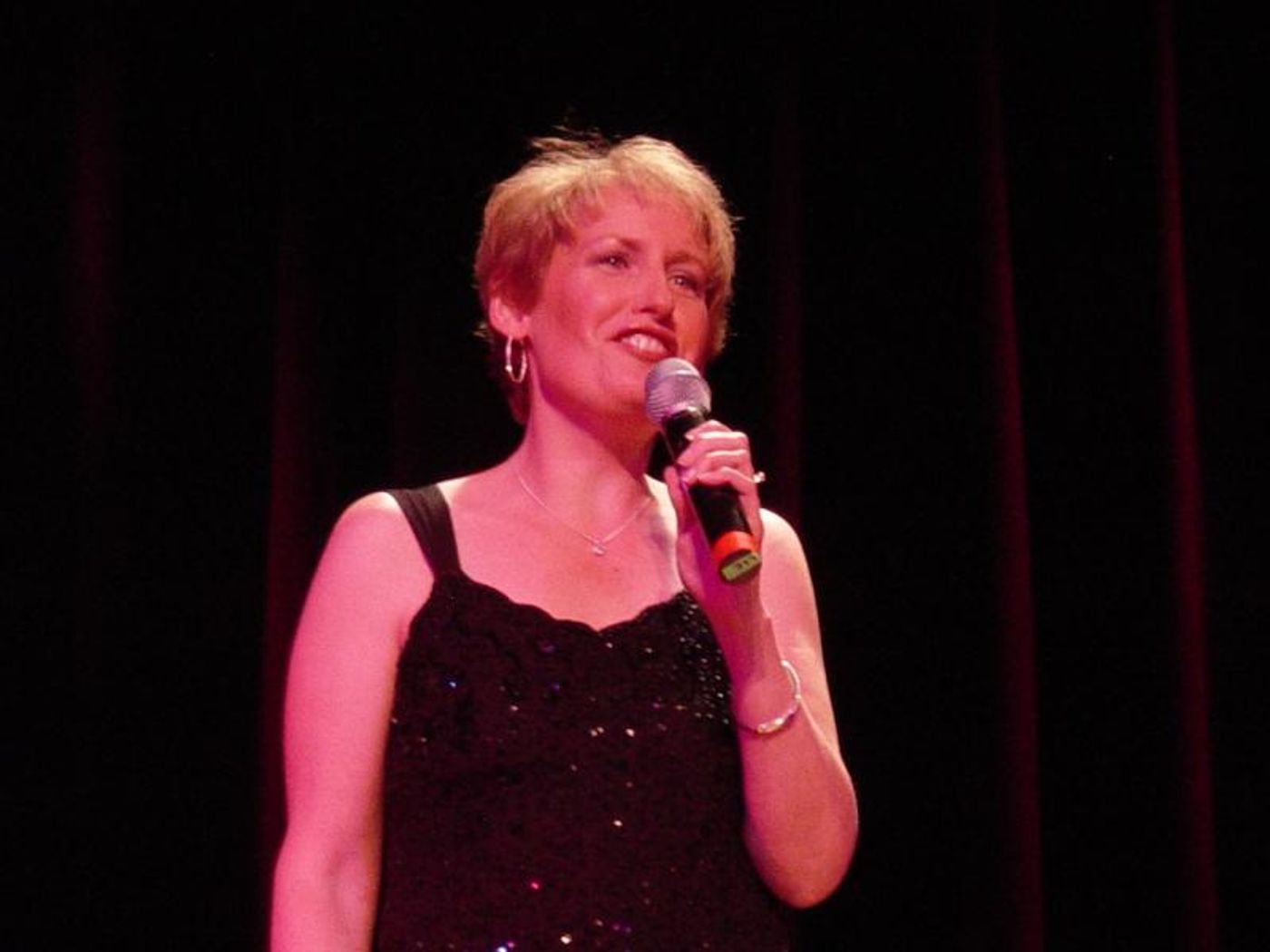
Liz Callaway, who’ll be at Feinstein’s at Loews Regency June 17-28, performs “Lion Tamer” from The Magic Show.
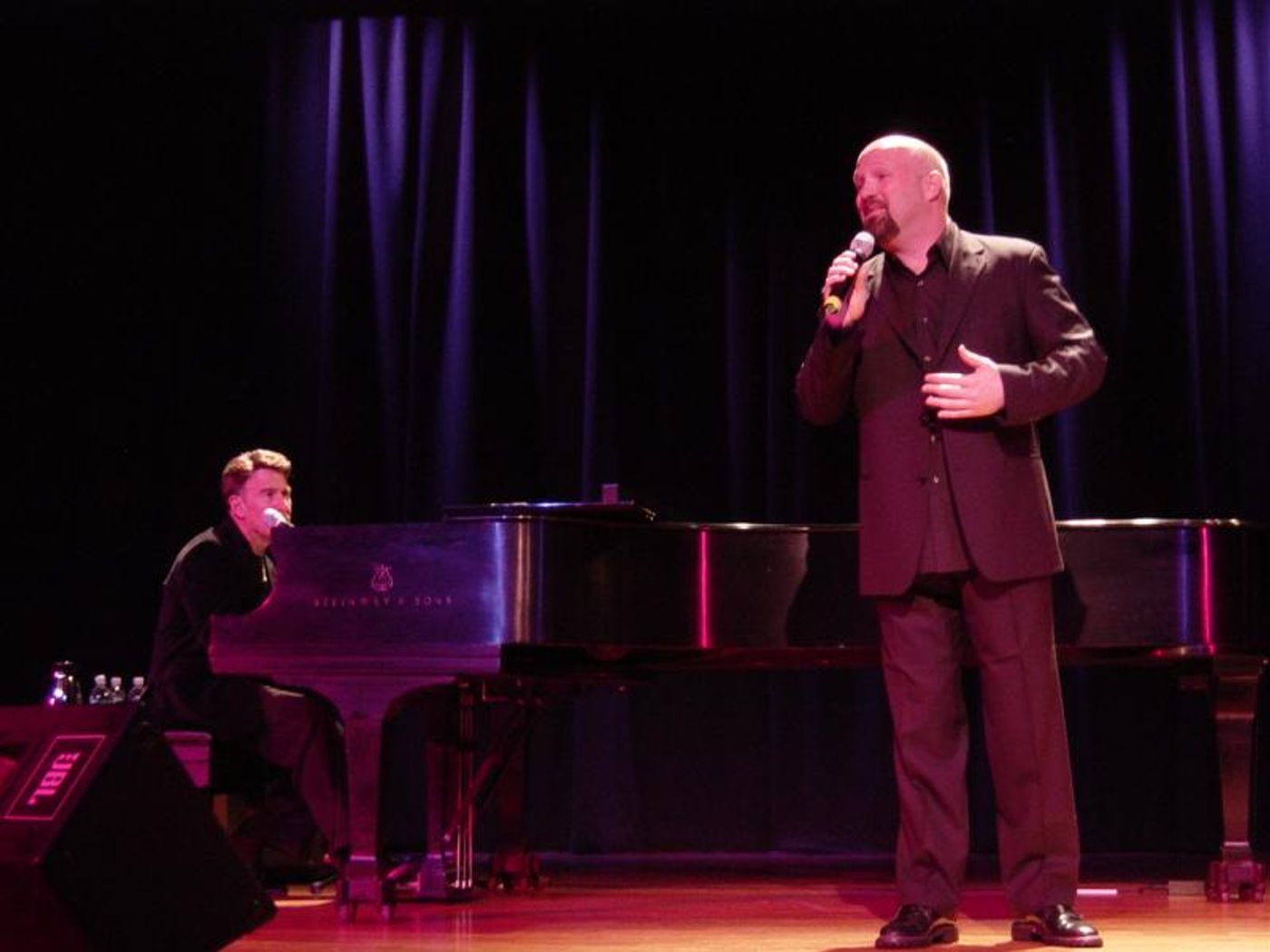
Cabaret artist Scott Coulter opened with a medley of “Just Around the Riverbend” and “Corner of the Sky” (from Pocahontas and Pippin, respectively).
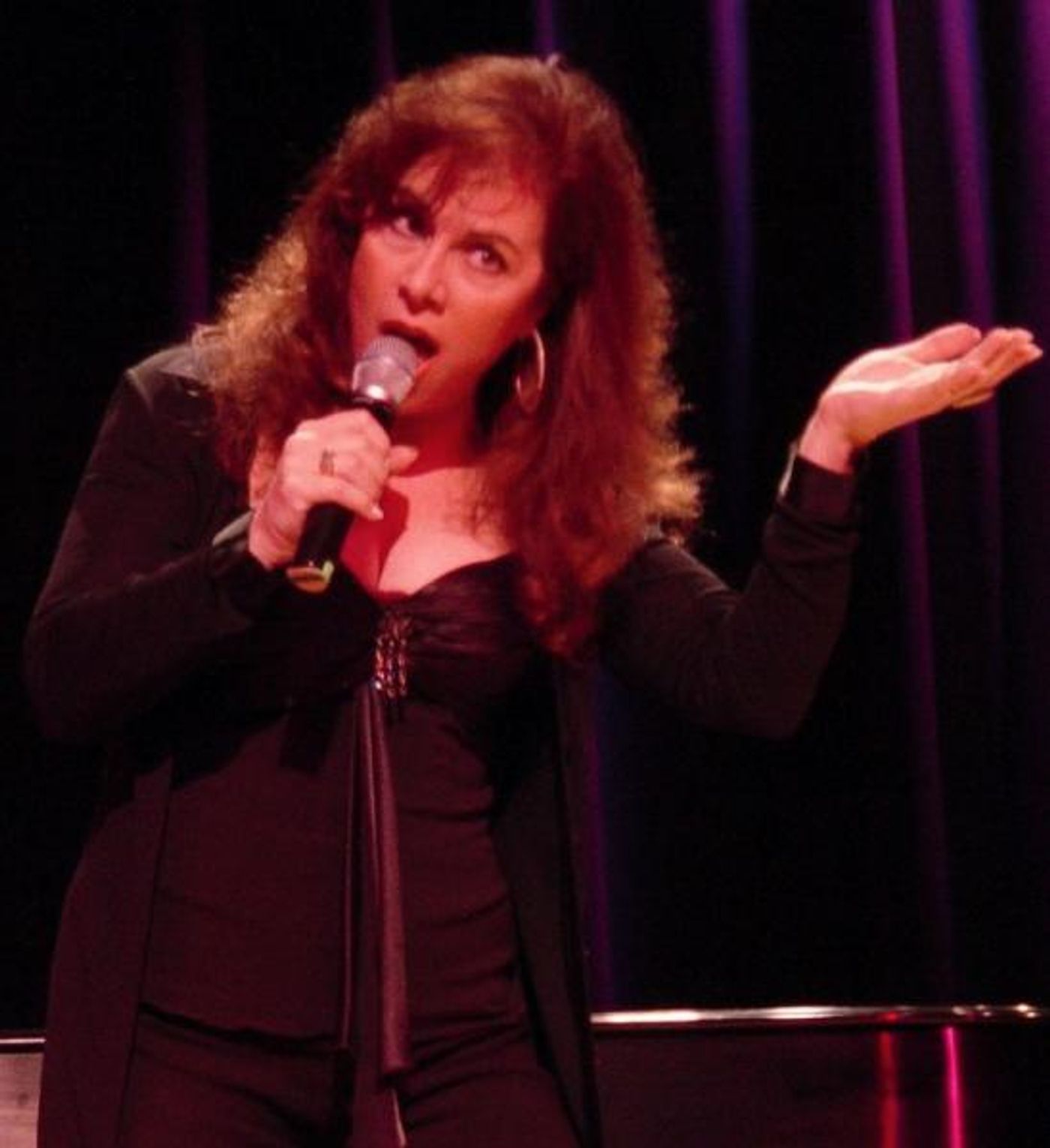
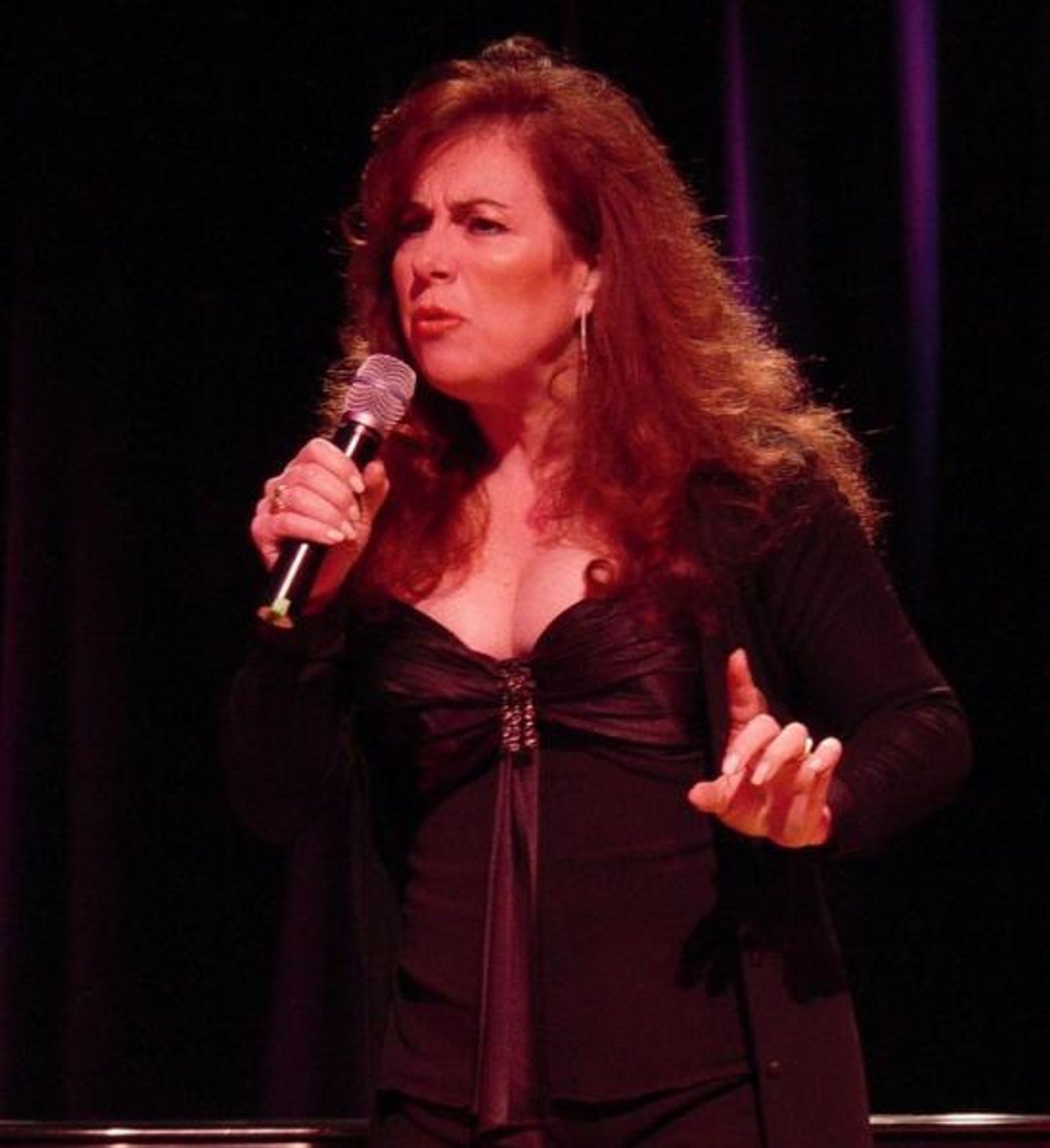
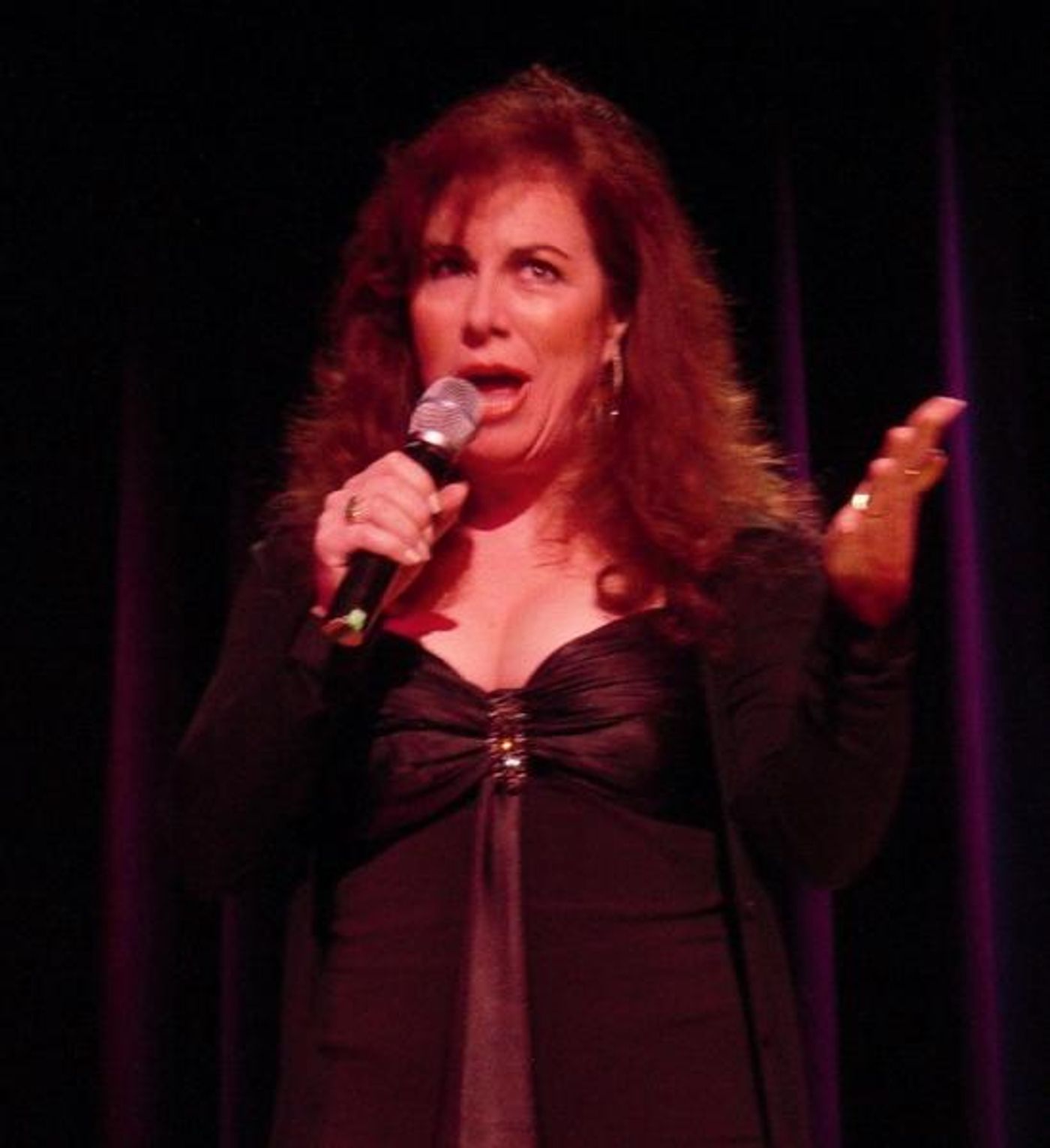
Since Debbie Gravitte has a Tony Award, Schwartz said he was making her act in addition to sing. So she played the role of dedicated waitress Delores Dante from Working and sang “It’s an Art.”
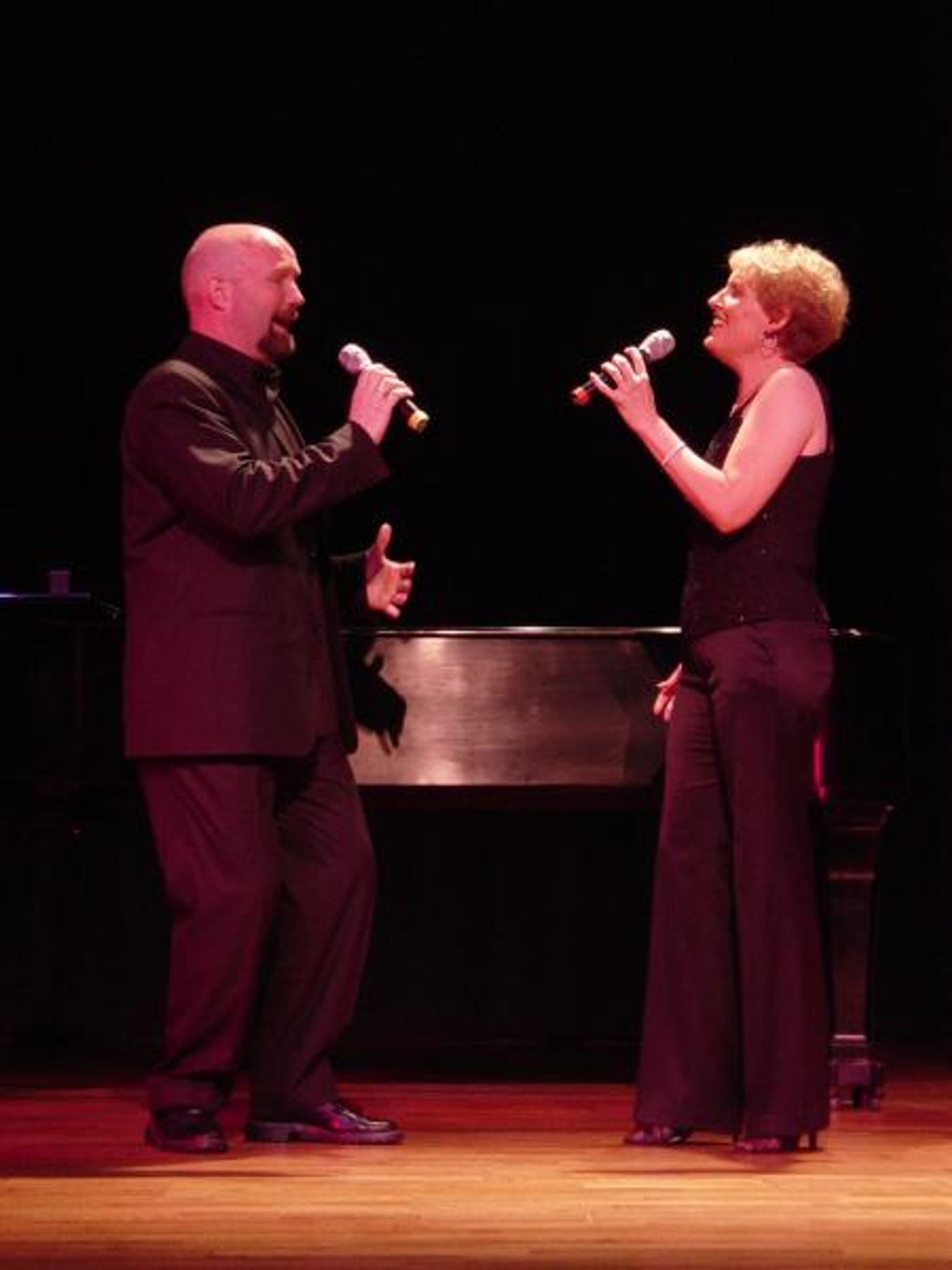
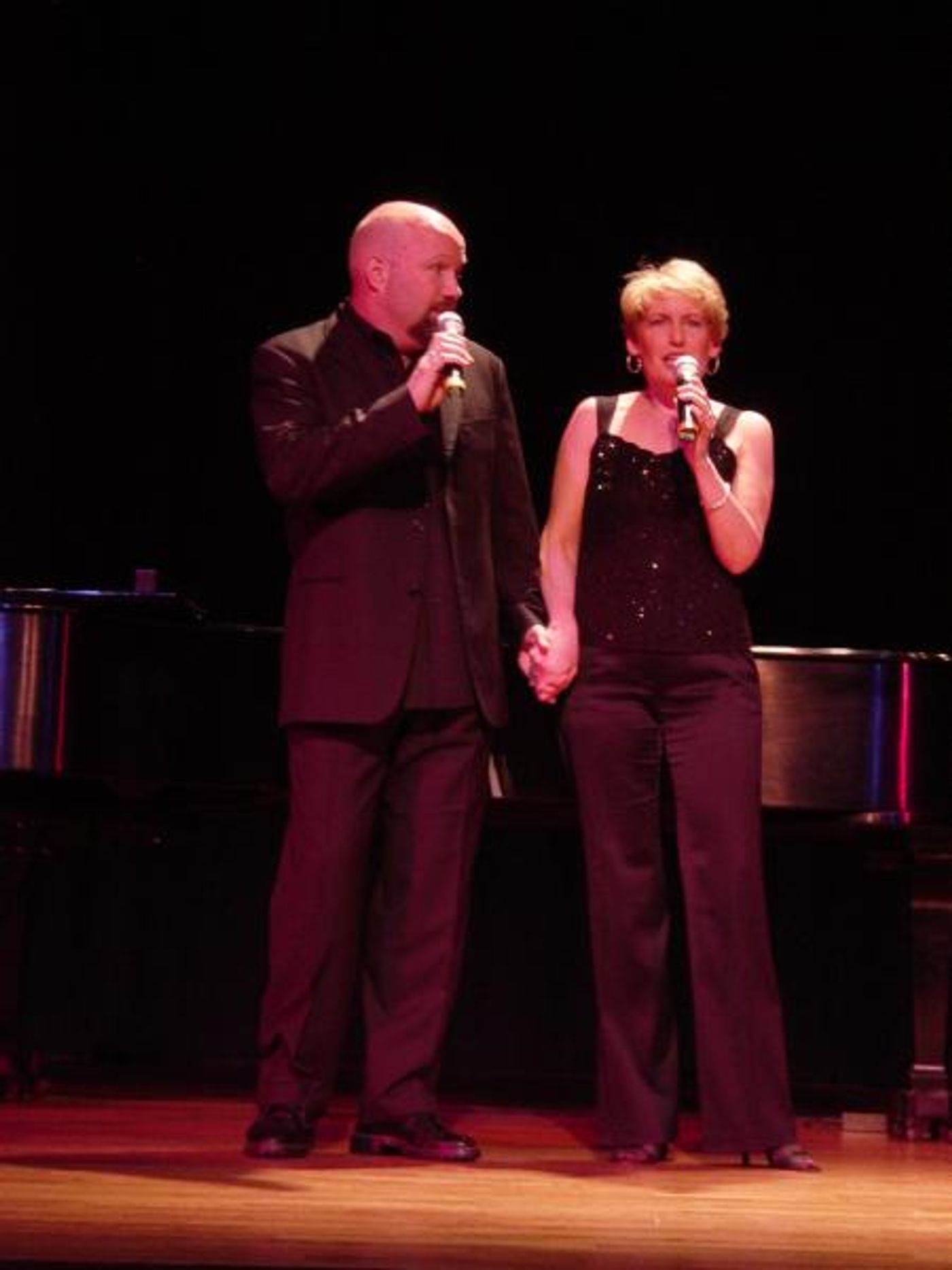
Time for a love duet: Coulter and Callaway with a little of Children of Eden and a little of Wicked, “In Whatever Time We Have” and “As Long As You’re Mine.”
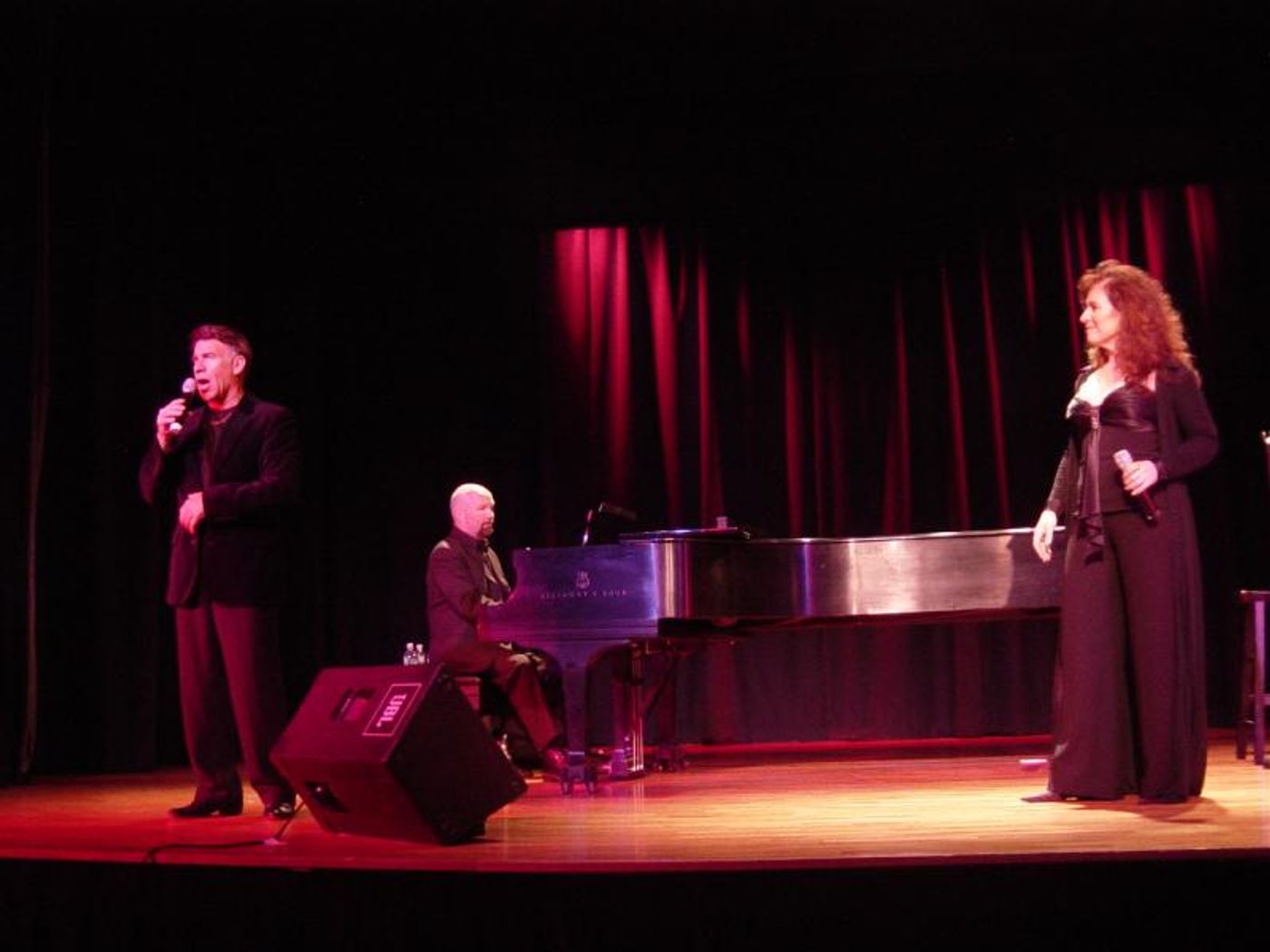
Coulter moved to the piano so Schwartz could duet with Gravitte on “Two’s Company”...
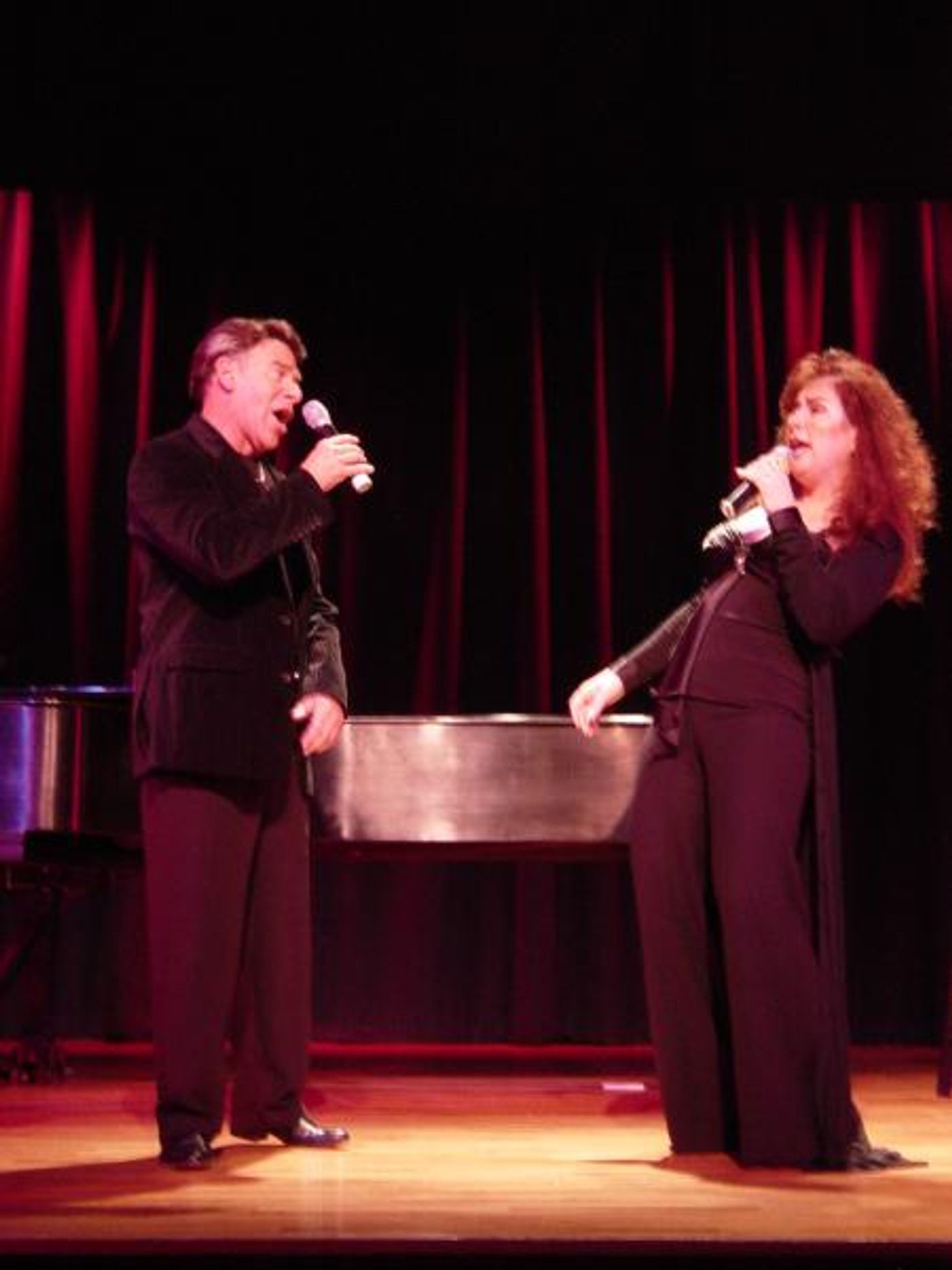
...and the tempo in the Magic Show tune just keeps getting faster and faster!
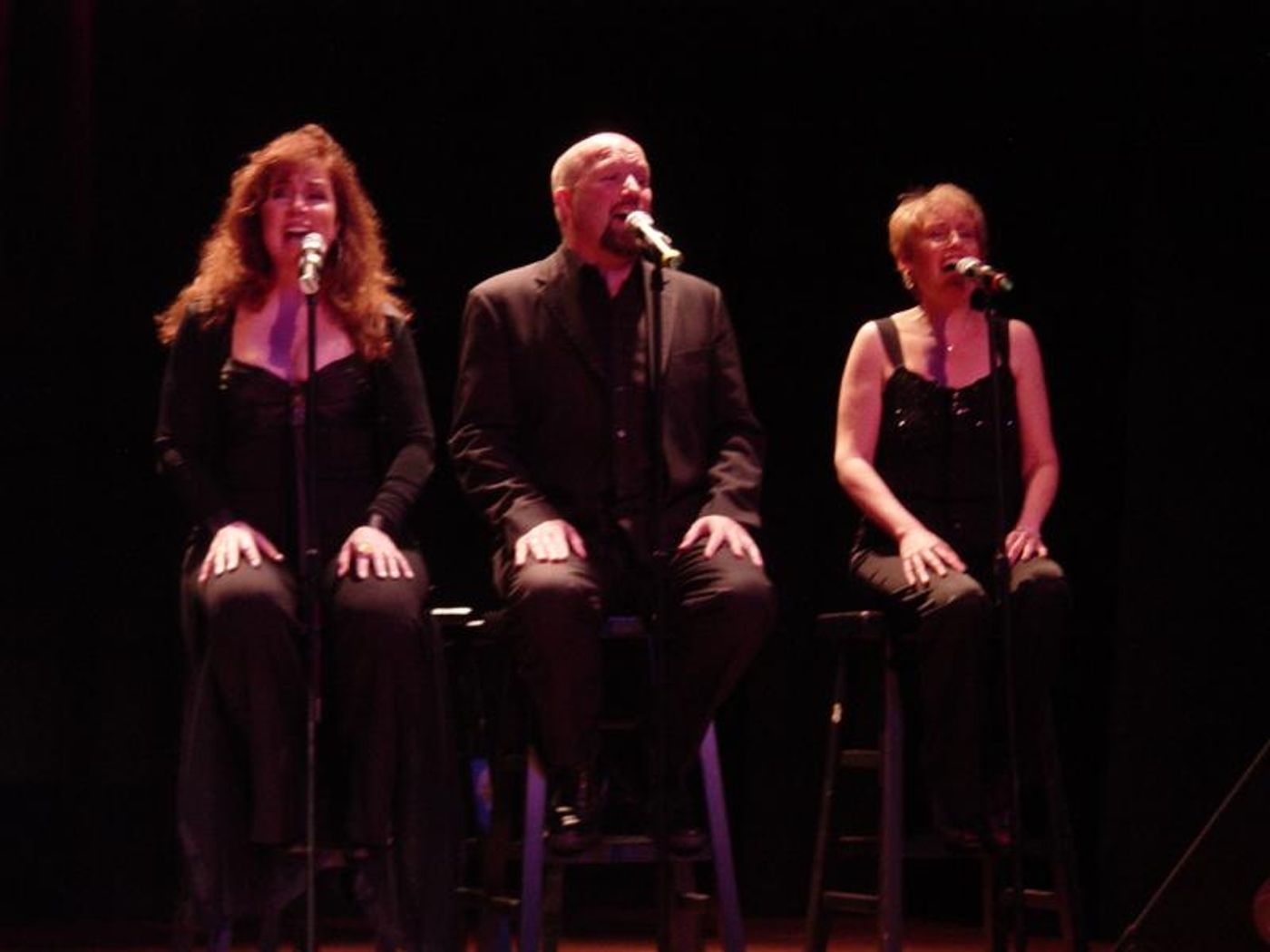
Gravitte, Coulter and Callaway back up Schwartz on “Dreamscape” from Reluctant Pilgrim. “Believe me, these three are not accustomed to singing backup,” he remarked as they began.
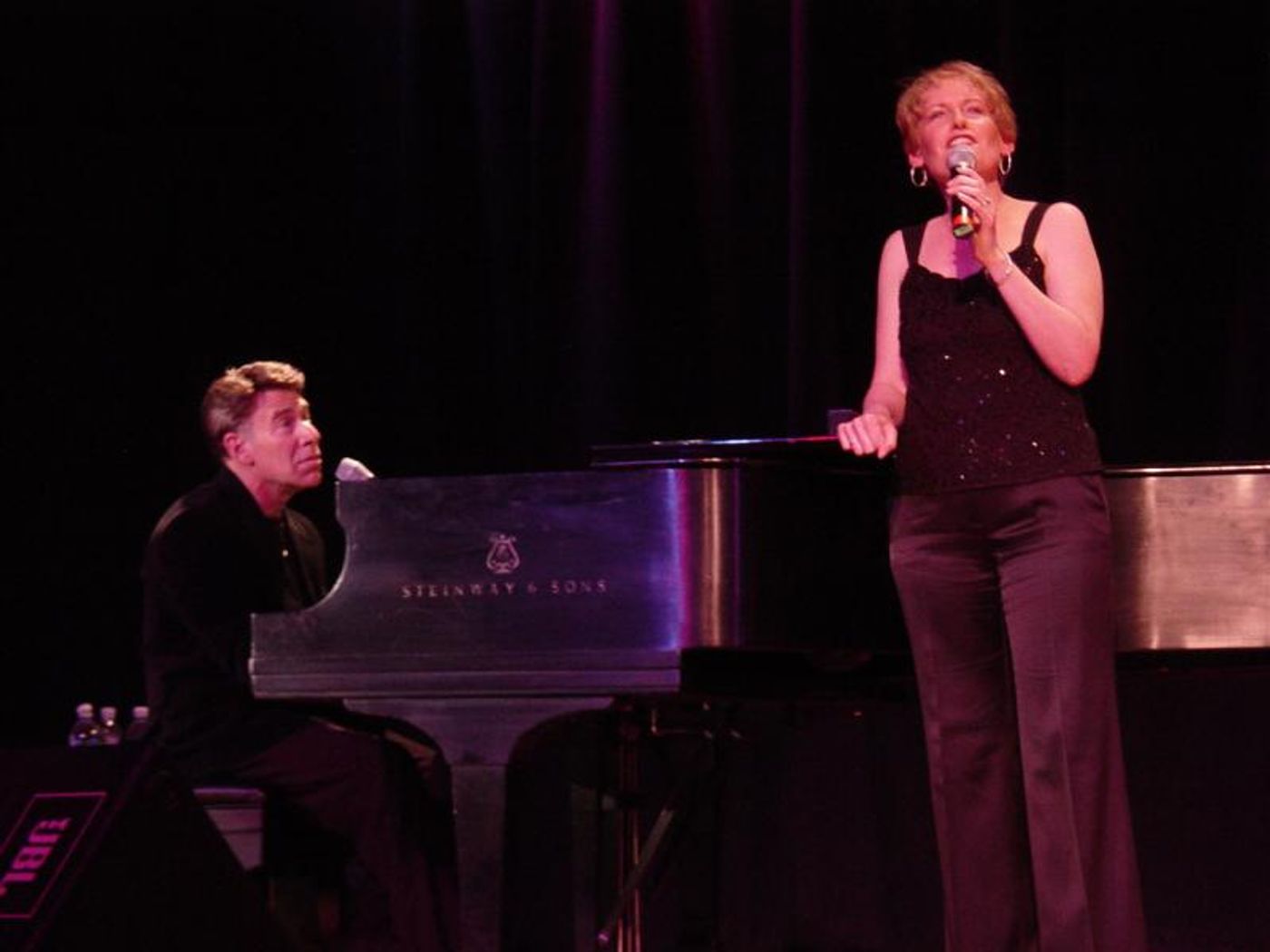
Callaway said of “Meadowlark” (from The Baker’s Wife), “It is a complete thrill for me to sing it with Stephen at the piano,” because the song has been in her repertoire since she worked as a singing waitress upon moving to New York at age 18. “I spent an enormous amount of time looking for really good material, to somehow try to make it up to my customers for screwing up their orders,” Callaway reminisced. But she could sing it only on certain shifts at the restaurant “because the piano part was so difficult, there was only one guy who could actually play it.”
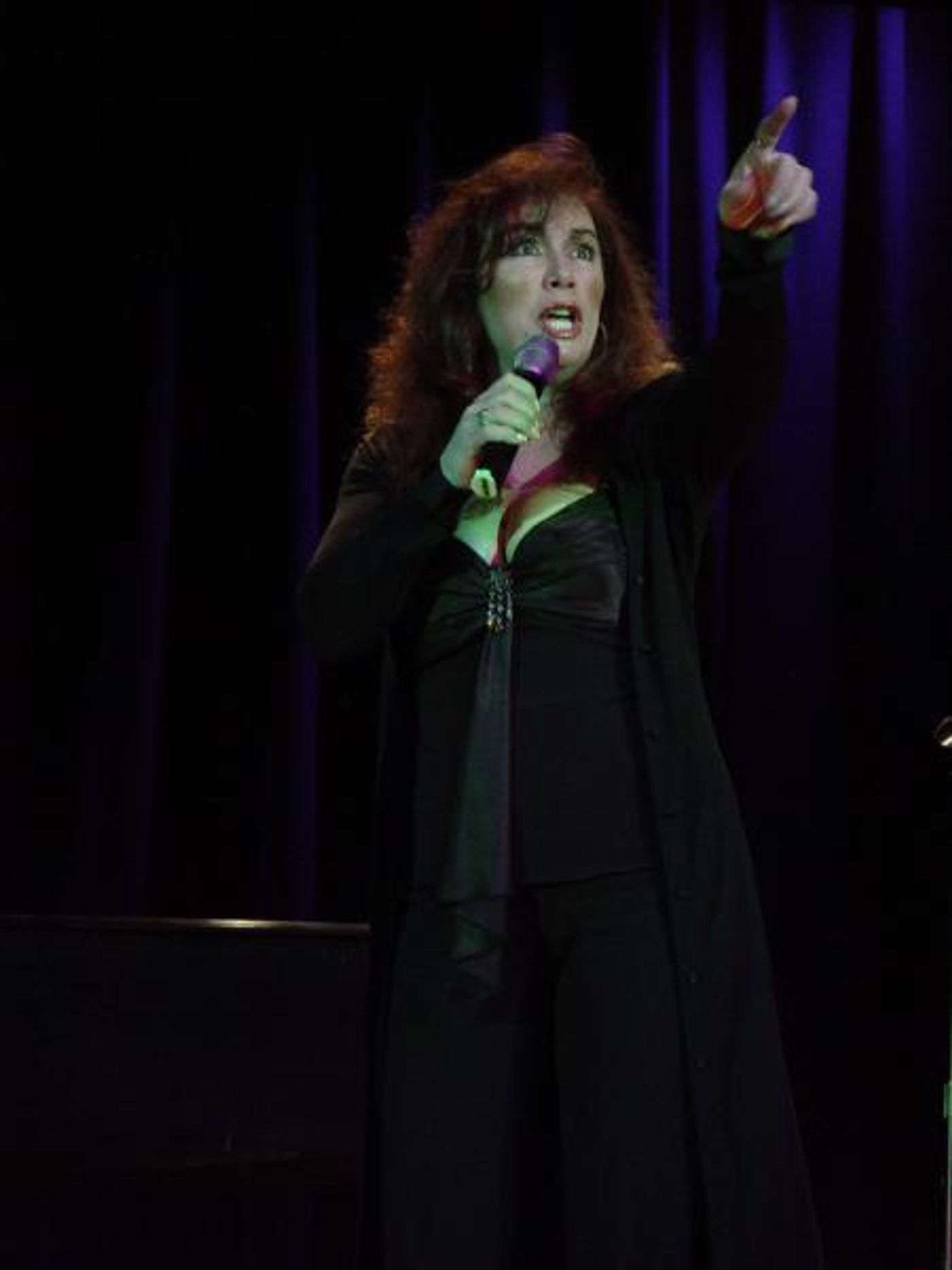
The crew adjusted the lights after Schwartz announced Gravitte would sing Elphaba’s “Defying Gravity” and asked the audience to “imagine Debbie as just a little greener.”
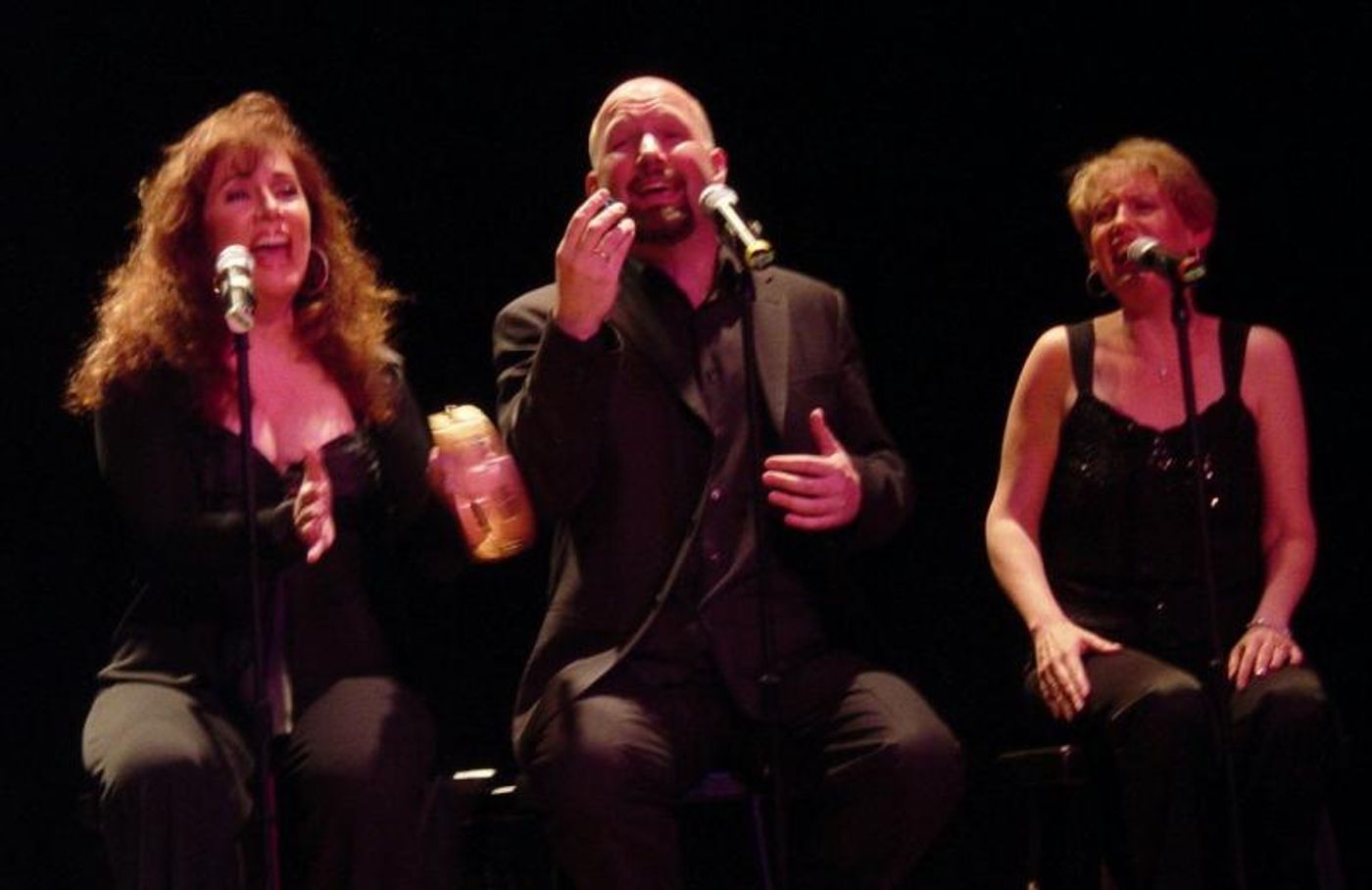
“When I go to see a singer or a songwriter, I get really annoyed with them if they don’t do their hits,” admitted Schwartz. And thus: “Day by Day.”
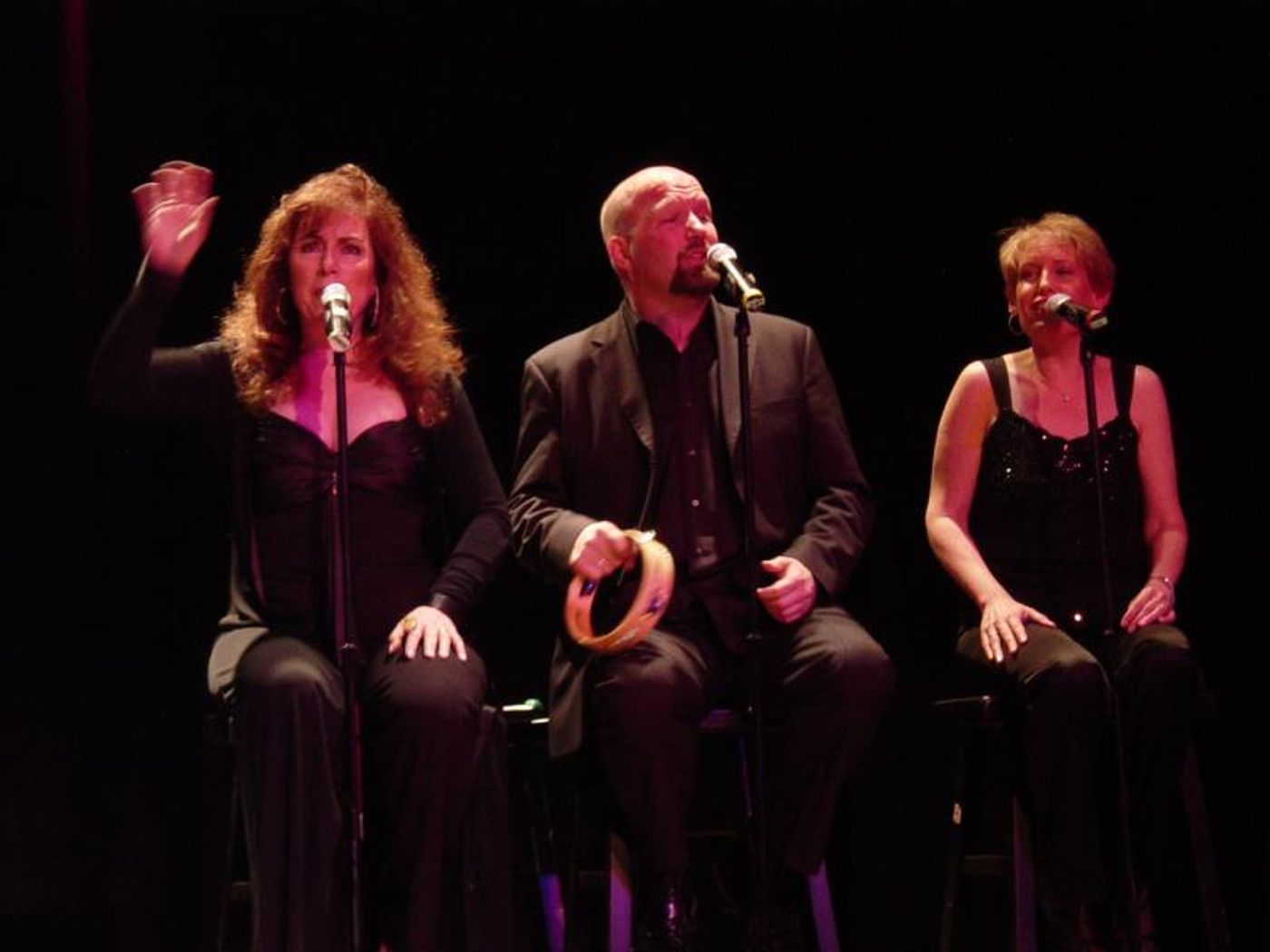
Gravitte took over lead vocals and passed the tambourine to Coulter for Godspell’s “Bless the Lord.”
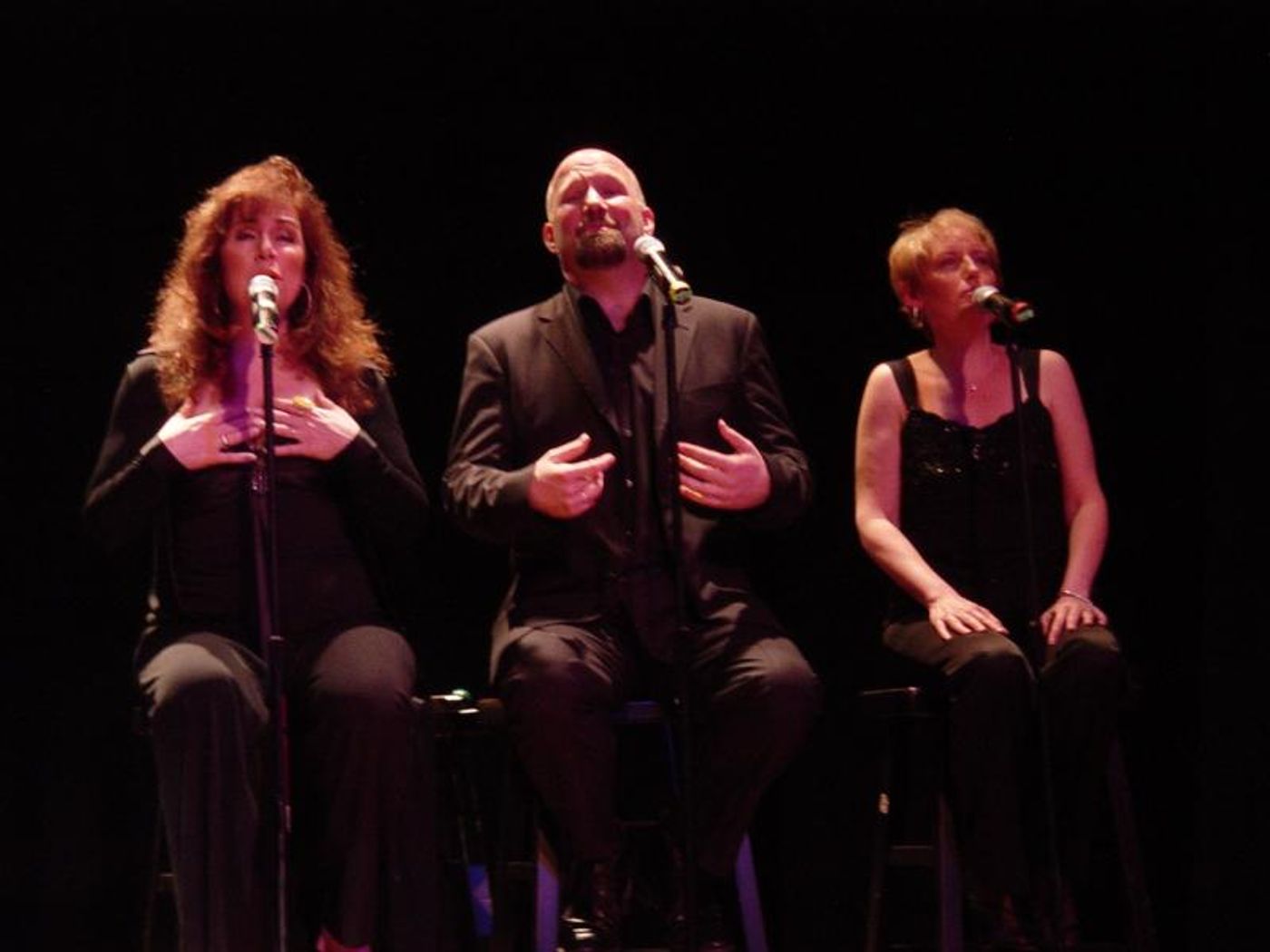
The hits medley continued with “Magic to Do,” “Popular” and Schwartz’s Oscar winners “Colors of the Wind” and “When You Believe.”
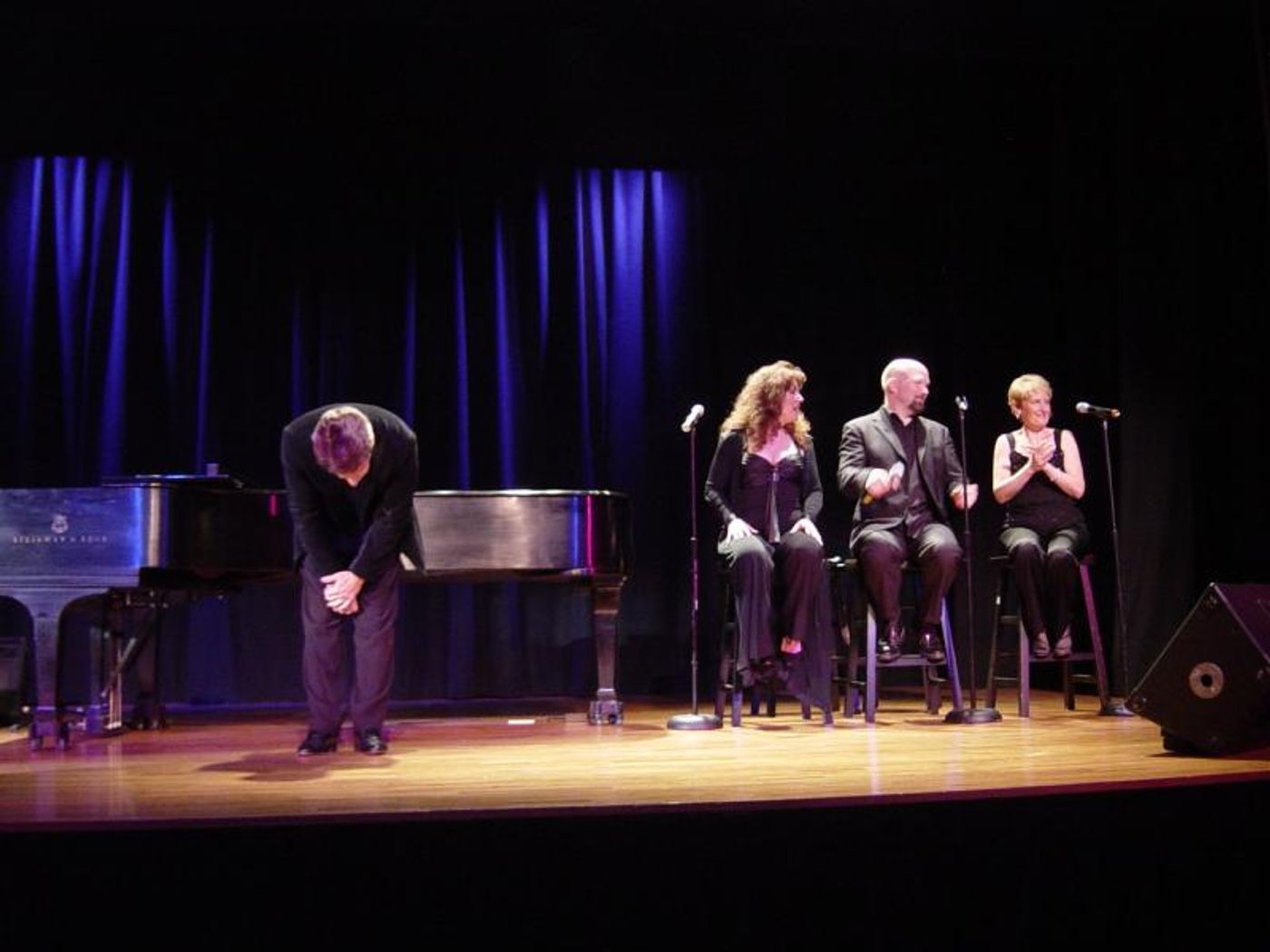
Schwartz receives a well-deserved ovation.
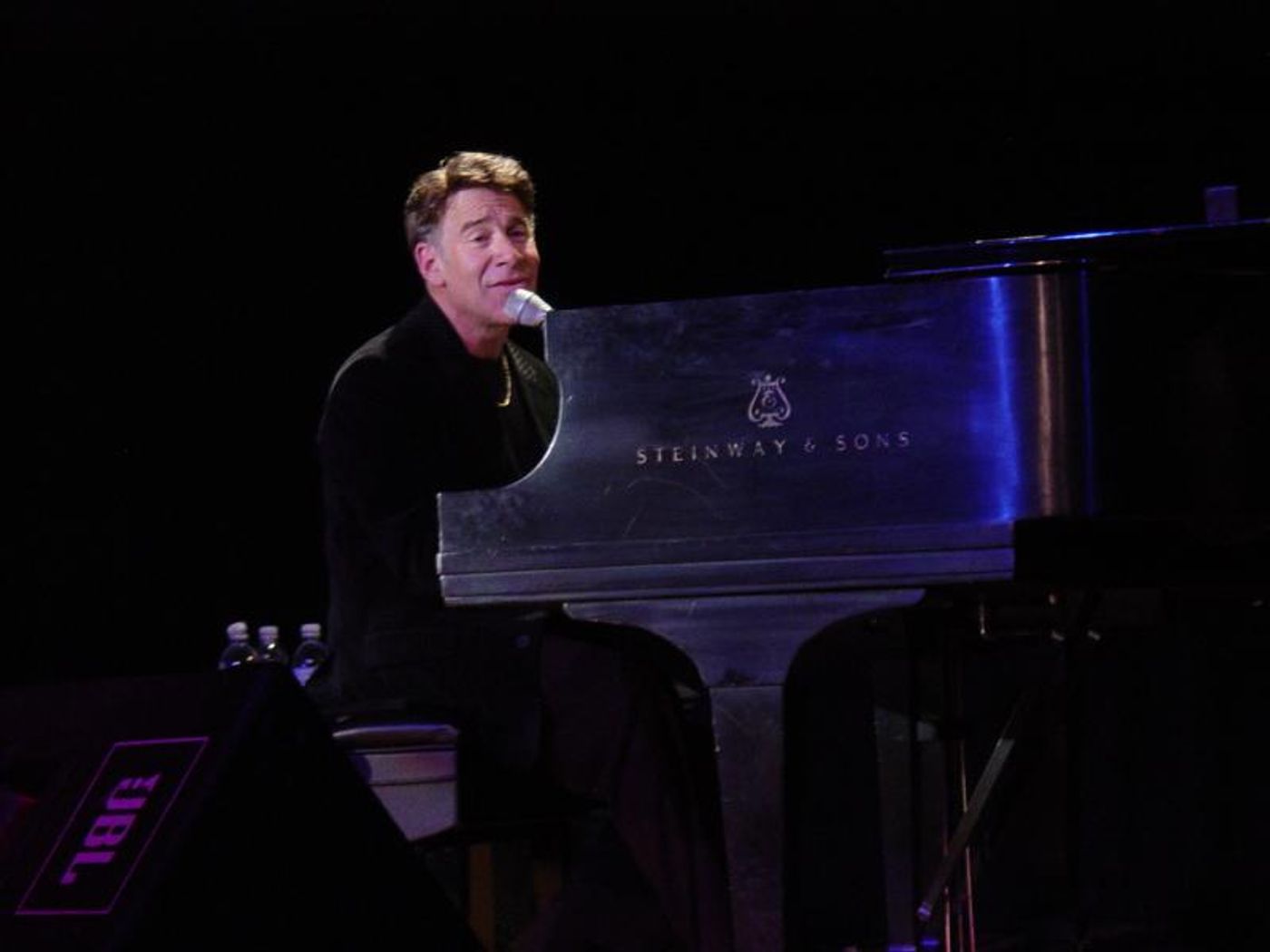
For an encore, Schwartz went to the Wicked well and sang “For Good.” He said it was appropriate because “it’s been great to be back in my own backyard.”
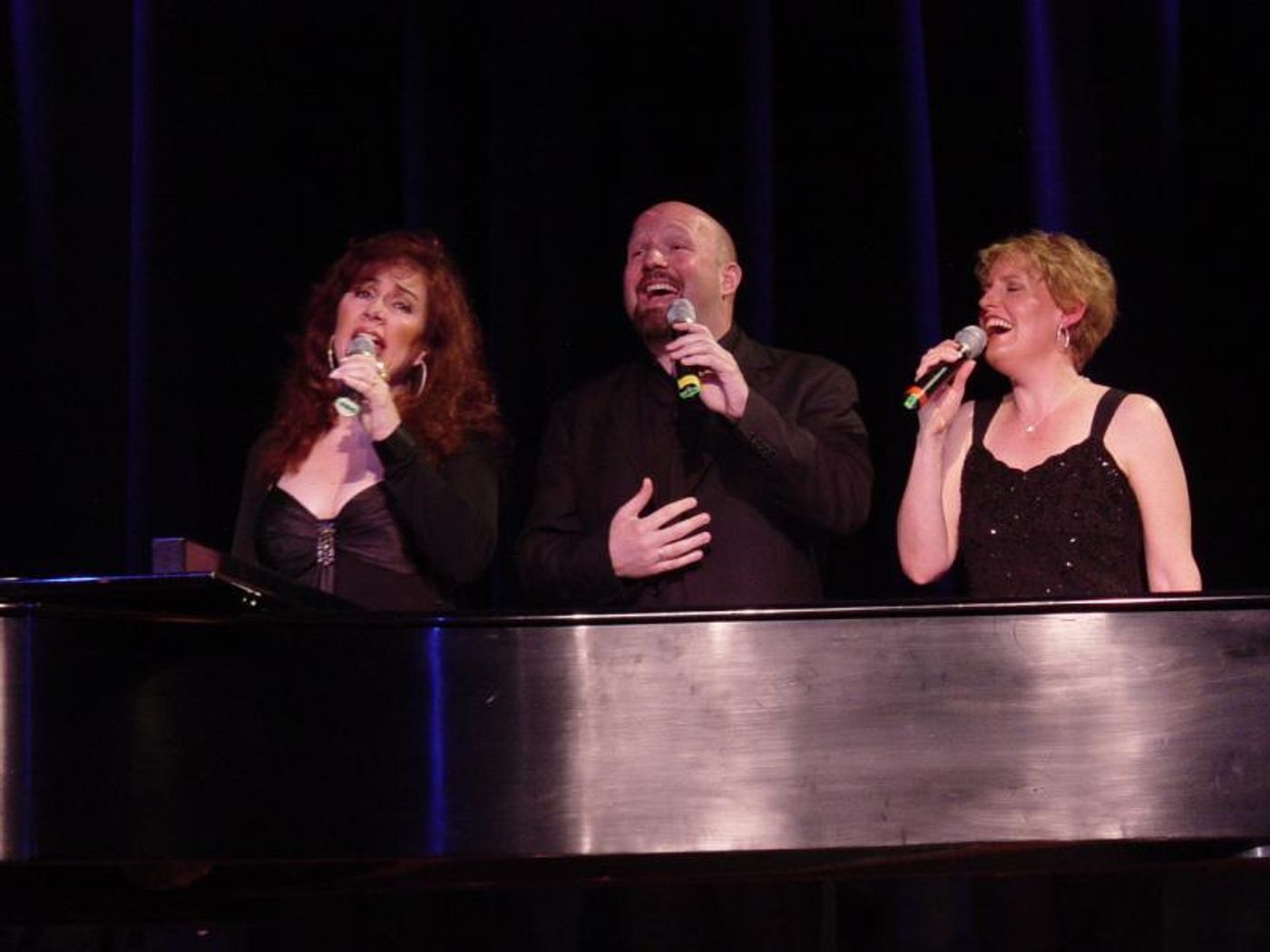
The singers joined Schwartz for the second encore, “Someday” from Hunchback of Notre Dame. “This not being the happiest time for our country or the world, it’s the wish we’d like to leave you with tonight,” he said.
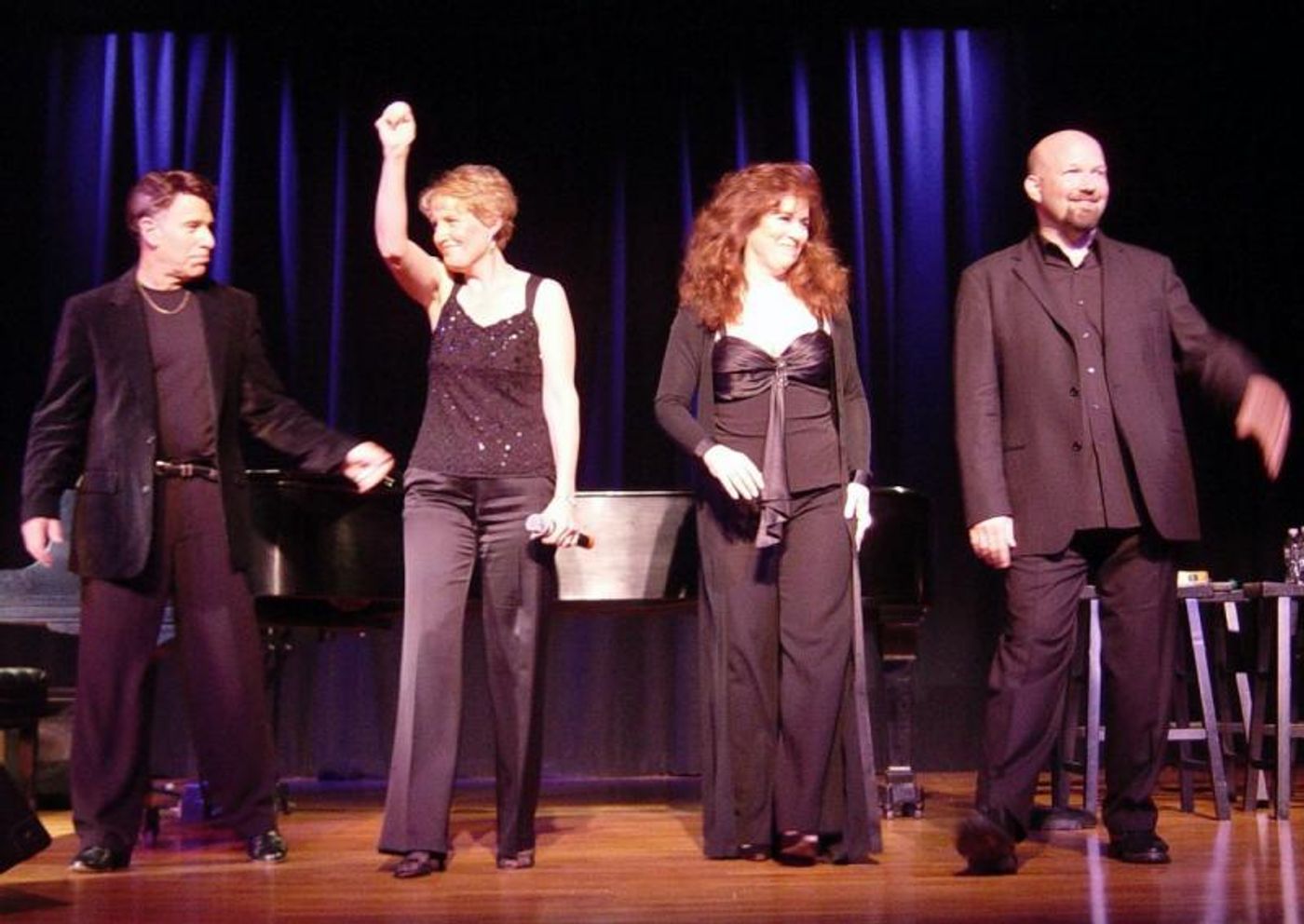
We should all have such talented friends like these!
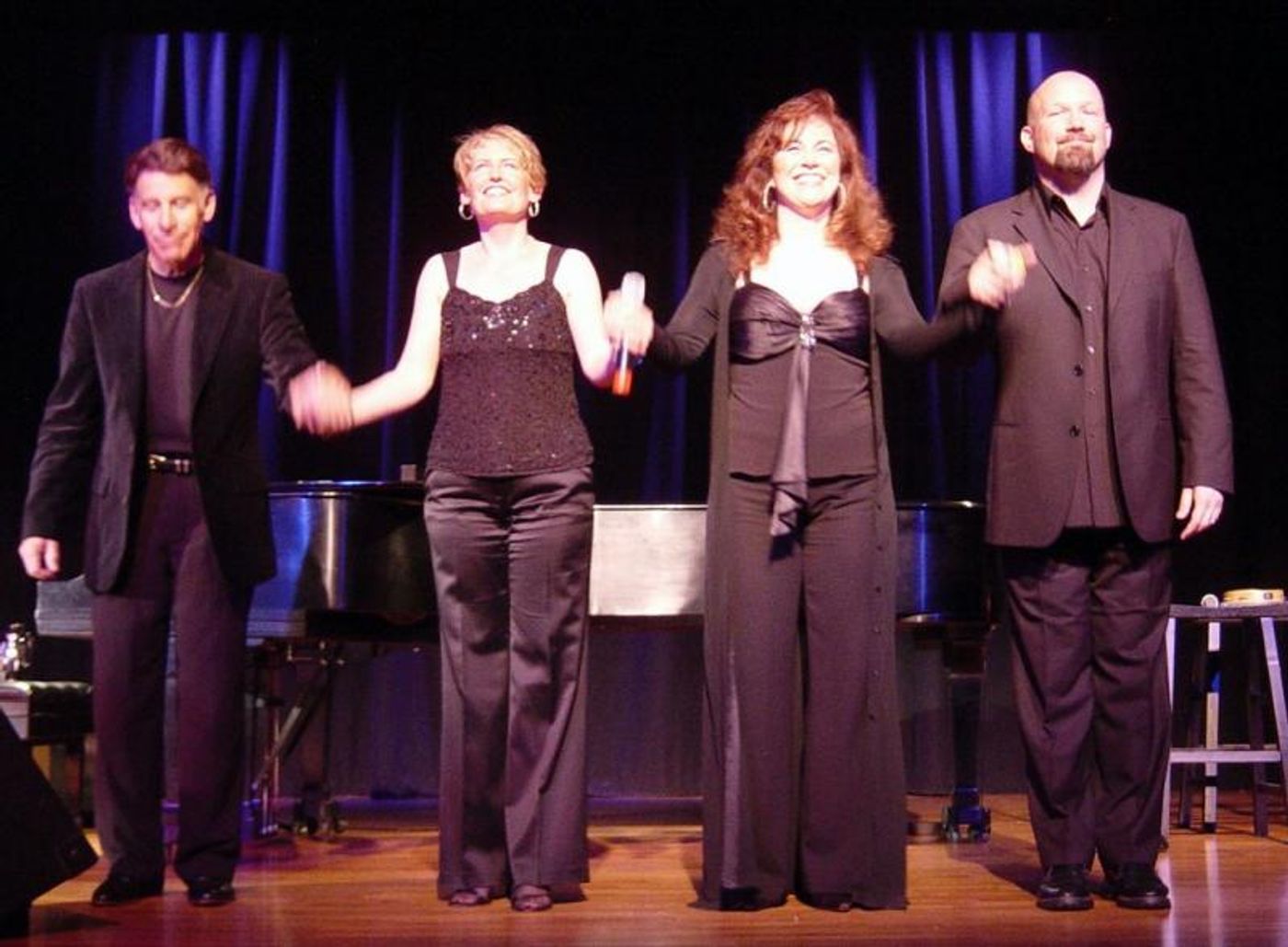
The end of a terrific evening of music and Long Island pride.



